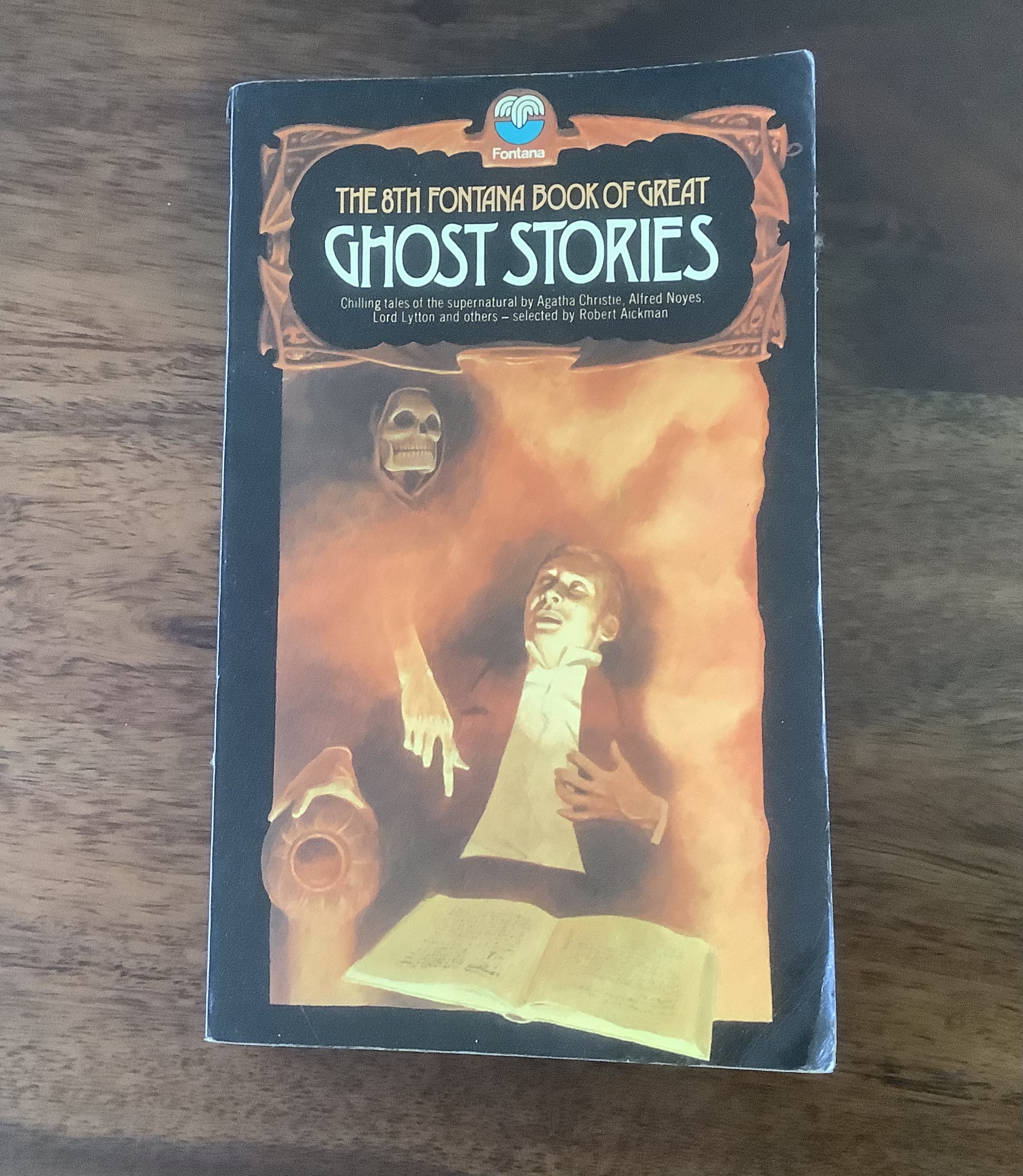The 8th Fontana Book of Great Ghost Stories, edited by Robert Aickman
My previous reviews of these Fontana Great Ghosts by Robert Aickman linked here: https://dflewisreviews.wordpress.com/2021/04/30/the-fontana-great-ghost-stories-chosen-by-robert-aickman/
My previous reviews regarding this book’s editor: https://dflewisreviews.wordpress.com/robert-aickman/
My previous reviews of older or classic books: https://dflewisreviews.wordpress.com/reviews-of-older-books/
WHEN I READ THE STORIES IN THE 6th BOOK, MY REVIEW WILL APPEAR IN THE COMMENT STREAM BELOW.

THE HAUNTED HAVEN by A.E. Ellis
“…the glorious panorama of St. Bride’s Bay, as it sweeps round in a majestic curve from Ramsey Island in the north to the Isle of Skomer in the south.”
An otherwise run-of-the-mill traditional ghost story of storms and fishing-boats and superstitious villagers in a secluded double-coved village (one cove said, by evidence, to be dangerously haunted by three nephews and their uncle, as a result of the latter’s after-death vengeance upon the former) – yes, but it also surreptitiously (till now) and creepily connects HERE with yesterday’s reading of this series of Aickman Fontana. Books, with the four head wounds as literally telling gashes or cracks! The uncle’s in particular has an Oke gash at the edge of his frown!? …
“, a great, livid weal across the side of his forehead.”
THE RED LODGE by H. R. Wakefield
“Directly I had shut the door I had again that very unpleasant sensation of being watched. It made the reading of Sidgwick’s The Use of Words in Reasoning — an old favourite of mine, which requires concentration — a difficult business. Time after time I found myself peeping into dark corners and shifting my position. And there were little sharp sounds; just the oak-panelling cracking, I supposed. After a time I became more absorbed in the book, and less fidgety, and then I heard a very soft cough just behind me. I felt little icy rays pour down and through me, but I would not look round, and I would go on reading. I had just reached the following passage: ‘However many things may be said about Socrates, or about any fact observed, there remains still more that might be said if the need arose; the need is the determining factor. Hence the distinction between complete and incomplete description, though perfectly sharp and clear in the abstract, can only have a meaning—can only be applied to actual cases—if it be taken as equivalent to sufficient description, the sufficiency being relative to some purpose. Evidently the description of Socrates as a man, scanty though it is, may be fully sufficient for the purpose of the modest enquiry whether he is mortal or not’—when my eye was caught by a green patch which suddenly appeared on the floor beside me, and then another and another,…”
I think the above section from it undertows not only this famously and truly terrifying work but also much of Aickman’s work. Indefiniteness and Ambiguity being the heading for one of its sections. The parents and small son and the nanny and other servants are staying for three months at the eponymous Lodge about which we are told straight from the start that they left before completing their stay because of its haunting qualities, involving patches of slime, and I dare not tell you about one particular entity that will give you “pure undiluted panic” if you tell anyone else about it without their having read the story first. I can tell you about the mysterious door in the garden, though, and the nearby knighted gentleman who comes to their assistance, and the little boy’s lack of fear of the sea previously in Frinton but his utter fear today of the river at eponymous Lodge. Seriously, this story is disturbing and will no doubt affect you even more adversely if you divulge too much to those who have not yet read Red Lodge. (The most I could dare do was reproduce an example edition of Sidgwick that was not red.)